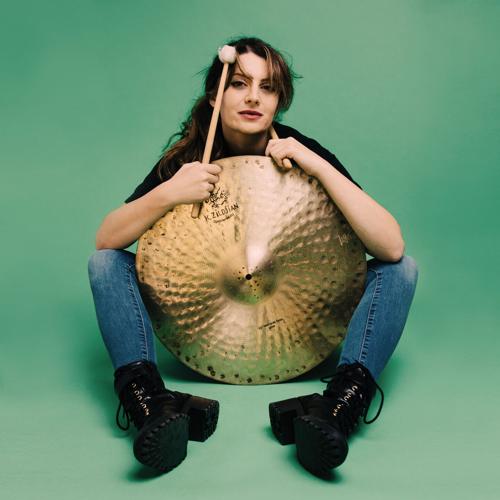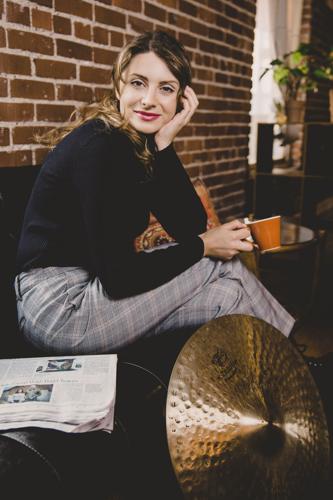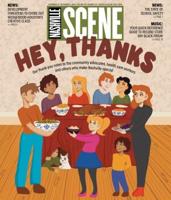
The Sofia Goodman Group plays progessive jazz. Historically, that phrase has been used to describe several different schools of thought, but what we’re talking about is a weird niche for people who like a lot of music in their music — a lot of ideas beamed to their ear holes. It’s smooth but it isn’t easy. It’s beautiful, but it isn’t wallpaper. There are electric and electronic elements, but they don’t dominate the soundscape. This variety of progressive jazz is its own tradition, and unless you’re already a fan, it is far-removed from the approaches you probably think of when someone says “jazz.” It’s a style that pulls liberally from, oh, the past 50 years of small-combo maximalism, where players push boundaries within themselves and for their audience, creating information-dense interplay free of irony.
Goodman and her band — featuring a boatload of top-notch young instrumentalists, including Serah Zhanell on percussion, Leland Nelson on bass, Rheal Janelle on guitar, Alex Murphy on piano and Troy Atkins on soprano sax — are currently at work with engineer Kevin Turner on their second album, a follow-up to 2018’s Myriad of Flowers. The ensemble, which you can see Wednesday at Rudy’s Jazz Room, prides itself on bringing a revitalizing energy to a genre that has a reputation for getting stale and staid under the influence of hidebound traditionalists, despite many of its heroes and heroines being the ones who take on the daunting task of reinventing it.
“I don’t believe in having to spell out the story all the time,” says Goodman, who composes original material for the group and leads the band from the drum throne. “I feel like that robs the audience of their own imagination. So I try not to overly explain, but find a way that I can offer my own personal experience.”
Goodman is a Massachusetts native with degrees from both Berklee College of Music and Belmont University, and her experience has been one of challenges and perseverance — from mental health issues and sexual violence to the patriachal impulses that are embedded deep in the music world in general and jazz in particular. She works in a vernacular that, at its worst, is more evocative of dads with ponytails playing air drums than diversity, equity and inclusion. But she doesn’t let the disparity direct her creative intuition.
“[When I was young] I resonated with punk rock because it was like, you know, ‘Fuck the system,’ ” says Goodman. “But my music teacher saw that I really liked music. And so she told me about the Berklee five-week summer program. I went, and Esperanza Spalding was my ensemble teacher. My whole entire world totally shifted because just being there — just being exposed to the musicians and how they worked together and played together — it opened me up to a lot of stuff, musically and otherwise.”
But with the eye-opening exposure to the magic of music also came the harsh realities of the violence and misogyny that have long bubbled under the jazz scene’s hip veneer. Drugged and raped in her dorm at the age of 19, Goodman saw firsthand the callous ways that both institutions and insular communities can treat victims of sexual violence. It is the type of tragedy that has cut short more promising musical careers than we can know, an unnecessary challenge in what’s already an uphill battle.

“I feel happy that so much has changed, even from when I was at Berklee College of Music around 2010, 2012,” Goodman says. “I feel like being in college would be so much different now as a woman in the music scene, because of a lot of the work that women musicians especially have done to protect younger generations — because of what they went through or what they witnessed. It seems like, finally, people are gonna be held accountable.”
Goodman walks the walk in her work with grassroots organization Nashville Women in Jazz. With a mission to “encourage and empower women and underrepresented people in Nashville’s jazz scene,” NWIJ distributes a women-centric event calendar, is building a database of players and makes outreach appearances at local jazz events. You might have seen Goodman holding down the NWIJ booth at the recent 25th anniversary run of Murfreesboro Jazz Fest.
Fusing different sounds is a great thing, but moving toward a better future in the face of oppression is what really matters. Goodman creates compositions that allow her collaborators to have a conversation among themselves and with their audience. Her art, wordless though it is, embodies optimism in the face of harrowing challenges that is eclipsed only by the radness of her drum solos.
“I’ve had a lot of bad things happen to me, traumatic things,” says Goodman. “And I think that I’m kind of at a point where I would like to find a way to talk about these things. I feel like it could help people.”
Goodman’s work strives for lofty goals, takes big musical risks and aspires for the freedom to manifest itself fully. It is truly progressive and fundamentally jazz — and a reason to be excited about the continuing evolution of jazz in Music City.






